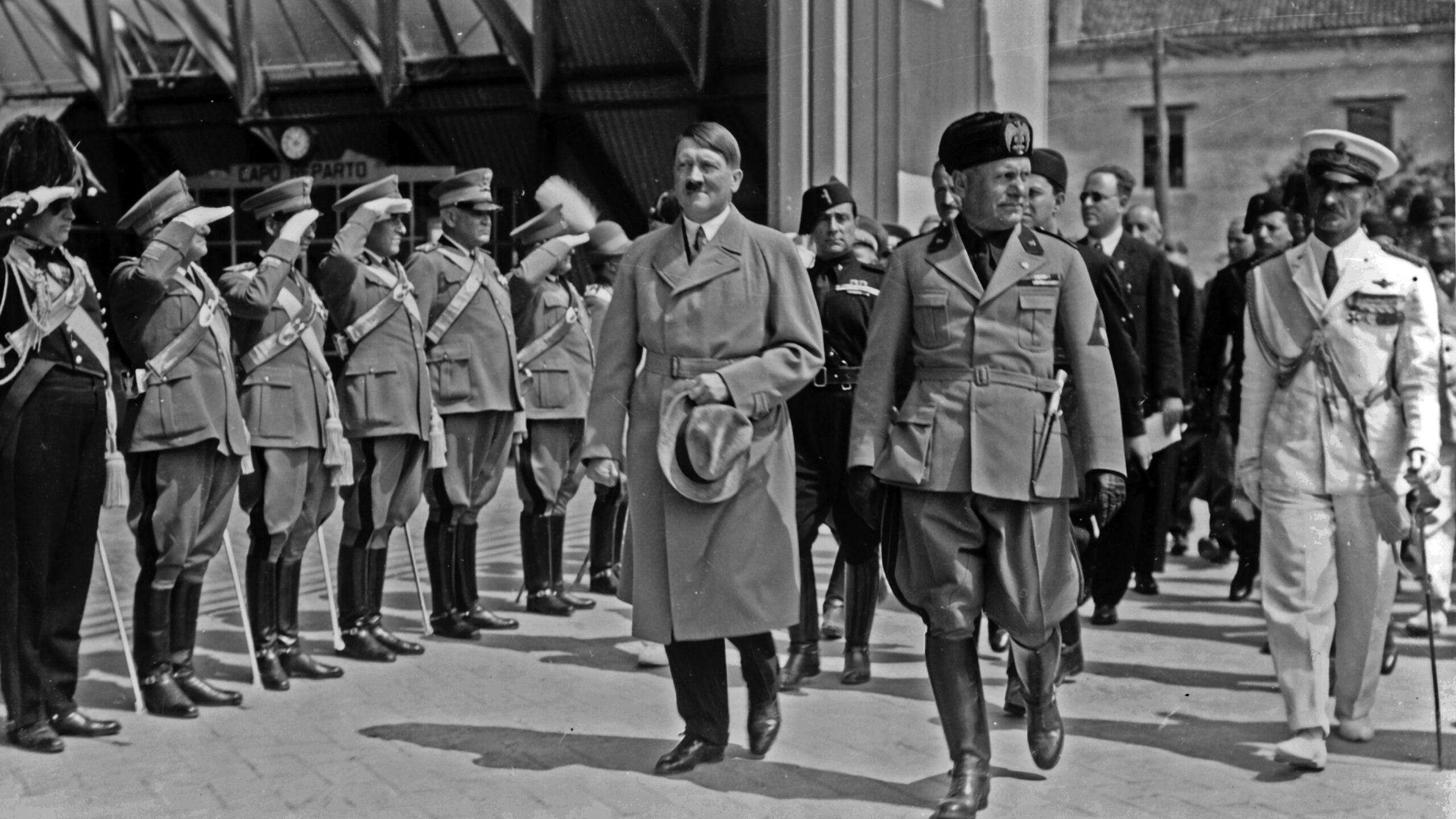To better understand our ideological age, we would all do well to return to one of the eminent totalitarian practitioners from the twentieth century, Italy’s Benito Mussolini. In addition to being one of the century’s most bombastic strongmen, Mussolini perceived his reign as the work of an ingenious artist. Through calculated stagecraft and deft propaganda, Il Duce blended aesthetics with politics to move the masses. Simply watching a video of the broad shouldered, bald-headed dictator is a lesson in struts and smirks, arm-waving and head-shaking. The dictator was a performer. And the assembled crowds and sycophants adored it.
Early in his rule, the international press and influencers fawned over the Duce. “In your [March on Rome],” a journalist asked, “did you feel like an artist who starts his work of art or a prophet who follows his own vision?” Mussolini peered down at him and sniffed, “Artist.”
But what did he mean?
Mussolini was famous for declaring his own uncommon virility and his prophetic call to rebuild the Roman Empire. With his strength and creative genius, he insisted, he would mold the masses into a masterpiece. The people would serve as the medium for his exquisite artistry—a fascist society that would know no parallel. Speaking to workers in Milan in 1922, he explained, “My father was a blacksmith who bent the red-hot iron on the anvil. Sometimes as a child I helped my father in his hard, humble job; and now I have the much harsher and harder job of bending the souls.” Mussolini was critical of Vladimir Lenin at his failure (just three years after the Bolshevik Revolution) to make the fledgling society into the hoped-for Communist paradise. “The task,” Mussolini smirked, “was beyond his power.”
And so, Mussolini would try his way.
From his “appointment” as prime minister following his March on Rome in 1922 to his ignominious execution in 1945, Mussolini cinched the noose of control around the neck of the Italian people. The Fascist regime would brook no dissent. Italy became a police state run by vicious blackshirts and intriguing informers. Competing political parties were crushed, the means of the economy were nationalized, and education and civil society were “fascitized.” In fact, the word “totalitarian” was first coined in 1923 by opposition leader Giovanna Amendola to describe Mussolini’s all-consuming state. Before long, Mussolini would shamelessly co-opt Amendola’s neologism. “That goal that is defined as our ferocious totalitarian will,” he boasted, “will be pursued with even greater ferociousness: it will truly become the dominant thought and preoccupation of our activity.” Mussolini would insist on the clarity of his aims: “All within the state, nothing outside the state, nothing against the state.”
Though opposition declared him to be ruthless, Italy’s dictator found his harsh tactics in keeping with his “artistry.” The leader must tame the people—the medium of his craft—just as the artist must tame the raw materials of his design. “Doesn’t the sculptor sometimes break the marble out of rage, because it does not precisely mold in his hands according to his vision? . . . Everything depends on that, to dominate the masses as an artist.”
But this was Mussolini’s great mistake (and, frankly, the mistake of every victim of ideological thinking). Human beings are not mere objects. We don’t exist for the cynical utility of others. We are profoundly complex, at times ineffable, beings of agency and compulsion, sense and mystery. As such, we are endlessly fascinating in our inscrutability. Our uniqueness and unpredictability is the stuff of Homer and Dostoevsky, Shakespeare and Austen. To be sure, we gobble up the stories of human behavior because we know that our story matters, but also because one certainty about our existence is the uncertainty of why we do what we do. G.K. Chesterton reminds us that “every man has forgotten who he is. One may understand the cosmos, but never the ego; the self is more distant than any star.” Hamlet stops Horatio short as Hamlet’s cocksure friend strives to explain the inexplicable, “There are more things in heaven and Earth, Horatio, / Than are dreamt of in your philosophy.” Even Saturday Night Live’s Gilda Radner, who succumbed to ovarian cancer at the young age of forty-two, described the unpredictability of life (and the enigma of ourselves) as “Delicious Ambiguity.”
But Mussolini and all ideologists cannot tolerate this. They are bent on a preferred theory to which reality must conform. Of those entranced by ideology, the brilliant Thomas Sowell made a keen, but dark observation: “The grand delusion . . . is that they have both the right and the ability to move their fellow creatures around like blocks of wood—and that the end results will be no different than if people had voluntarily chosen the same action.”
But we are so much more grand than blocks of wood. Every soiled photograph, every handwritten letter, every name etched in marble that serve as memorials to those who have perished at the hands of Ideology, testify to the dignity, the uniqueness, and the irreplaceability of every man, every woman, every child. And yet, there is reason for hope. Though it has (and will) cause untold horrors, the ideological project (be it Mussolini’s, Hitler’s, Lenin’s, Mao’s, or our many modern varieties) will never fully succeed because we are not children of ideology, but dignified children of God. “Human nature,” CS Lewis insisted, “will be the last part of Nature to surrender to Man.”
Mussolini is dead. Executed and hung from his ankles from a gas station rafter to be stoned and spat upon not far from the Milan piazza where the crowds once roared for him, he is no more. But the temptation of ideology is alive and well. In a moment of clarity, Mussolini recognized, “Human beings are harder than rock and less malleable than iron. There is no masterpiece. The artist has failed.” Somehow he stumbled upon the truth, but seemed to have forgotten the lesson.
Pray God that we do not.
